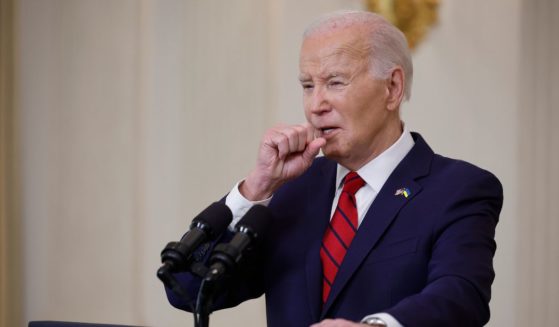Report: Distributors, DEA failed to abate US opioid crisis
CHARLESTON, W.Va. (AP) — A congressional report on prescription pill dumping in West Virginia blames U.S. prescription drug distributors and the Drug Enforcement Administration for not doing enough to help mitigate the nation’s opioid addiction and overdose crisis.
The 324-page report released Wednesday by the House Energy and Commerce Committee followed an 18-month investigation and focused on the three largest U.S. wholesale drug companies, McKesson Corp., Cardinal Health and AmerisourceBergen, and regional distributors.
The report cited examples of massive pill shipments to West Virginia, which has a population of 1.8 million and has by far the nation’s highest death rate from prescription drugs. McKesson shipped an average of 9,650 hydrocodone pills per day in 2007 to a now-closed pharmacy in Kermit, which has a population of about 400. The shipments were 36 times above a monthly dosage shipment threshold the company had established that year.
The Charleston Gazette-Mail previously cited federal records that showed drug wholesalers shipped 780 million hydrocodone and oxycodone pills to West Virginia from 2007 to 2012, a period when 1,728 people fatally overdosed on the painkillers. Gazette-Mail reporter Eric Eyre won a Pulitzer Prize last year for investigative reporting on the subject.
The committee report calls the shipments “troubling” and said it raises serious questions about compliance with the DEA-administered Controlled Substances Act. Until at least 2010, the DEA didn’t proactively review usage data to combat the diversion of drugs for illicit purposes, the report said.
Drug distributors are required to submit suspicious orders to the DEA, which “still does not have a centralized way to analyze suspicious order reports submitted by drug distributors,” the report said. Instead, suspicious orders are typically reported to local DEA offices, resulting in inconsistent handling under varying regulatory interpretations.
“As the country continues to feel the effects of the opioid crisis, neither distributors nor the DEA can shirk their oversight responsibilities,” the report said.
The report suggests pharmacies with suspicious orders should be subjected to heightened monitoring, Congress should enact additional requirements on suspicious pill orders to clarify database registrant responsibilities, and the DEA should work to provide more real-time data to registrants.
Earlier this year the DEA approved a rule change requiring drugmakers to identify a legitimate need for opioids to justify their production in an attempt to rein in their diversion for abuse.
The DEA is using critical lessons learned from the opioid crisis to implement policy improvements and “make sure what happened in West Virginia never happens again,” spokesman Wade Sparks said in a statement Thursday.
More than 351,000 people have died of opioid overdoses in the United States since 1999, and far more people die each year from opioid misuse than from traffic accidents or violence, the report said.
“This investigation is a start to establish some accountability and understanding about the epidemic, but this inquiry is only a look at a piece of the overall puzzle,” the report said. “There are other actors involved in the epidemic including manufacturers, pharmacies, physicians, and drug traffickers.”
McKesson, AmerisourceBergen and Cardinal Health face lawsuits from local governments in multiple states.
Last year, San Francisco-based McKesson agreed to pay $150 million to settle a federal complaint that it failed to detect and report pharmacies’ suspicious orders of prescription pain pills. The company also agreed to a multi-year suspension of sales of controlled substances from distribution centers in Colorado, Ohio, Michigan and Florida.
While not commenting on the committee’s report, McKesson said Thursday it is committed to “acting with urgency and working together to end this national crisis.”
Chesterbrook, Pennsylvania-based AmerisourceBergen said in a statement it has proactively enacted many of the report’s recommendations but has “virtually no interaction with physicians and limited legal ability to gather information on their practices and prescribing behavior.”
Dublin Ohio-based Cardinal Health said it would “continue to implement rigorous anti-diversion controls.” A company statement said it is an intermediary in the pharmaceutical supply chain that “plays a limited but vital role.”
The Western Journal has not reviewed this Associated Press story prior to publication. Therefore, it may contain editorial bias or may in some other way not meet our normal editorial standards. It is provided to our readers as a service from The Western Journal.
Truth and Accuracy
We are committed to truth and accuracy in all of our journalism. Read our editorial standards.












